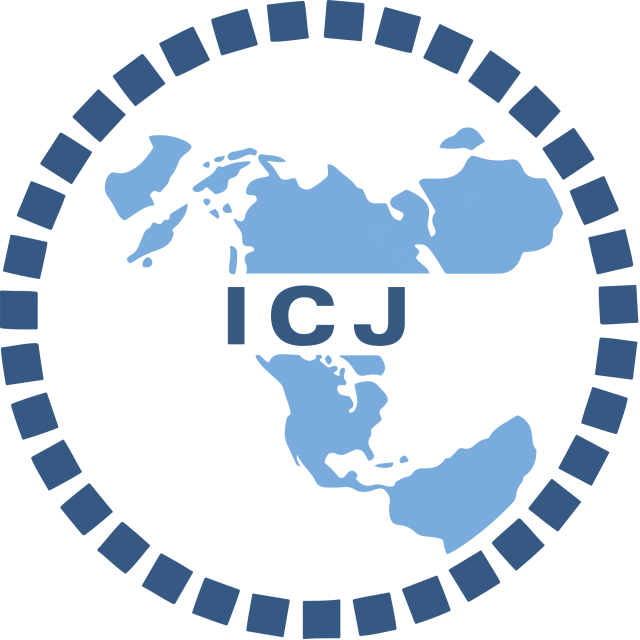Committee Overview
The International Court of Justice (ICJ) is the principal judicial organ of the United Nations and was established in 1945 under the UN Charter. The ICJ is located at the Peace Palace in The Hague, Netherlands. The primary intent of the ICJ is to settle international legal disputes between states and to give advisory opinions to the other organs of the UN. Created right after the conclusion of the International Military Tribunal (the Nuremberg Trials) and the International Military Tribunal of the Far East (the Tokyo Trials), the ICJ was created at a time of rising interest and faith in international courts. The ICJ comprises fifteen judges serving nine-year terms, rotating five seats every three years. Judges of the Court are elected by an absolute majority in both the General Assembly and the Security Council (SC). Members of the Court may not hold any other legal counsel or advisory position outside the Court during their term. Members are eligible for re-election, and every three years, the President and Vice-President of the Court are elected by secret ballot. The President’s roles include breaking tied votes, attending every session of the ICJ, and residing in The Hague. Furthermore, parties of the same interest and privy to a case that does not have a judge of its nationality on the Court may request an ad-hoc judge. For example, in a two-party case in which both parties are of separate interest and do not have judges sitting on the Court, the parties may request two ad-hoc judges for a total of seventeen judges.
Topic A: Guyana v. Venezuela
This case involves a territorial dispute between Guyana and Venezuela. The argument is over the Essequibo region, a large and resource-rich area that covers about two-thirds of Guyana’s land. This conflict goes back to the late 1800s, when Guyana was a British colony called British Guiana. Both Venezuela and the United Kingdom claimed the land between the Essequibo River in the east and the Orinoco River in the west. In 1897, the two countries agreed to let a special tribunal settle the dispute. In 1899, the tribunal gave the Orinoco River area to Venezuela and the land east of it to the United Kingdom. In 1905, both sides agreed to the borders. However, in 1962, Venezuela changed its mind. It said the original decision was unfair and influenced by politics. In 1966, Venezuela, the UK, and British Guiana signed the Geneva Agreement, which created a special commission to keep working on the issue peacefully, but the agreement did not decide who owned the land. After years of talks with no success, Guyana brought the case to the ICJ in 2018. Guyana asked the Court to confirm that the 1899 decision is still valid. Venezuela disagrees with using the ICJ and says the matter should still be handled through direct talks under the 1966 agreement. In 2023, Venezuela held a vote asking their citizens questions about claiming the Essequibo region, including if Venezuela should give residents Venezuelan citizenship and add the land to its official maps. Delegates discussing this case must deal with many challenges, including who legally owns the land, how the decision could affect peace in the region, and who gets to use the natural resources in the area.
Topic B: Australia v. China
Note: This is a fictional case. The events described below have not actually taken place. However, our goal is that this scenario will challenge delegates to confront important questions about international law.
On April 19, 2019, the Xing Ye, a Chinese crude oil tanker, suffered a catastrophic hull breach in the Great Barrier Reef. This led to one of the largest oil spills in history, with over 250,000 barrels of oil released into the environment. The cleanup efforts took years and cost nearly USD 50 billion. However, the environmental damage was not easily undone, and entire sections of the already fragile reef were killed off. Australia quickly sought damages from the operator of the Xing Ye, and the government of the People’s Republic of China quickly stepped in, offering manpower and financial assistance to Australia. Ultimately, because the breach was due to negligence, China agreed to cover the full cost of the cleanup effort. Australia, however, has sought greater damages. Australia is seeking long-term damages, arguing that the devastating effect of the loss of biodiversity will have an impact on tourism for decades to come. In turn, China has argued that its offer to compensate is already generous, and that climate change was already destroying the Great Barrier Reef at an alarming rate. Chinese officials point to a US study suggesting that the reef would be killed off by 2035. At the heart of this topic are questions about who should be responsible for the damages caused by specific climate disasters vs. the global, long-term effects of climate change. The questions which delegates will have to answer are if Australia is entitled to long-term damages, or if climate change is a foregone conclusion, as China argues.

